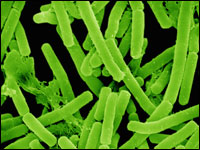 The surest way to know that there is no truly effective treatment for a condition is to count the number of treatment recommendations. The more recommendations, the less likely it is that any of them have a significant effect. I’m not sure if there is a tipping point. Whether 6 or 12 or 20 recommended treatments guarantee that you will have less than complete cure.
The surest way to know that there is no truly effective treatment for a condition is to count the number of treatment recommendations. The more recommendations, the less likely it is that any of them have a significant effect. I’m not sure if there is a tipping point. Whether 6 or 12 or 20 recommended treatments guarantee that you will have less than complete cure.
Here are some of the recommendations from just one article.
Continue reading Acne treatments →
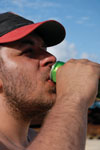 Energy drinks are consumed by 30% to 50% of adolescents and young adults. The manufacturers claim they are safe.
Energy drinks are consumed by 30% to 50% of adolescents and young adults. The manufacturers claim they are safe.
Researchers at the University of Miami, in Florida reviewed the evidence and came to a different conclusion. Continue reading Safety of energy drinks →
 The relationship between coffee or caffeine consumption and depression is not well defined.
The relationship between coffee or caffeine consumption and depression is not well defined.
Researchers in Boston and New York report a connection. Continue reading Coffee, caffeine, and the risk of depression →
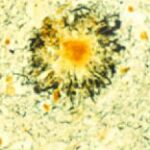 One hundred years ago, German physician Alois Alzheimer described “eine eigenartige Erkrankung der Hirnrinde” (a peculiar disease of the cerebral cortex) in Auguste Deter, a 51-year-old woman who had severe memory, language, and behavior problems. His autopsy results revealed a dramatically shrunken brain and unusual abnormalities in and around brain cells (shown here in black).
One hundred years ago, German physician Alois Alzheimer described “eine eigenartige Erkrankung der Hirnrinde” (a peculiar disease of the cerebral cortex) in Auguste Deter, a 51-year-old woman who had severe memory, language, and behavior problems. His autopsy results revealed a dramatically shrunken brain and unusual abnormalities in and around brain cells (shown here in black).
What’s this got to do with caffeine? Continue reading Caffeine and the risk of Alzheimer’s disease →
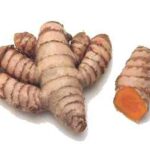 Researchers at Central South University, in Hunan, China studied the effect of curcumin (turmeric) on drug metabolizing enzymes.
Researchers at Central South University, in Hunan, China studied the effect of curcumin (turmeric) on drug metabolizing enzymes.
Their findings suggest a risk for curcumin-drug interactions. Continue reading Risk of curcumin-drug interactions →
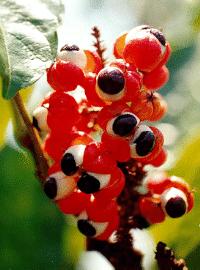 Guarana (Paullinia cupana) extracts are popular in energy drinks, teas, and capsules.
Guarana (Paullinia cupana) extracts are popular in energy drinks, teas, and capsules.
In this study, taking guarana improved mental performance and reduced the mental fatigue associated with tasks requiring a sustained mental effort.
How’d it do that? Continue reading Effect of guarana on mental performance and fatigue →
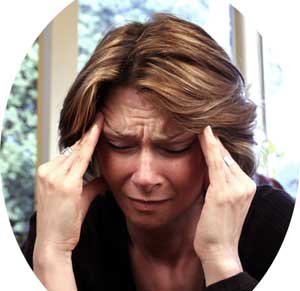 Reviewers from The New York Headache Center concluded, “The identification of food triggers, with the help of food diaries, is an inexpensive way to reduce migraine headaches.”
Reviewers from The New York Headache Center concluded, “The identification of food triggers, with the help of food diaries, is an inexpensive way to reduce migraine headaches.”
Here’s their list of triggers and treatments. Continue reading Foods and supplements to help manage migraine →
 These study results differ from past research, but it’s probably a better study. Continue reading Coffee not associated with heart failure →
These study results differ from past research, but it’s probably a better study. Continue reading Coffee not associated with heart failure →
 The US Food and Drug Administration is warning consumers not to buy or use Hardcore Energize Bullet (photo) or New Whey liquid products due to suspected product tampering.
The US Food and Drug Administration is warning consumers not to buy or use Hardcore Energize Bullet (photo) or New Whey liquid products due to suspected product tampering.
The products are sold in small test tube-like vials. Continue reading Consumer Alert: Hardcore Energize Bullet and New Whey →
 The results of this study do not support the contention these supplements enhance either muscle strength or anaerobic exercise performance.
The results of this study do not support the contention these supplements enhance either muscle strength or anaerobic exercise performance.
But a reader disputes the validity of the results. Continue reading Ephedra and caffeine in athletes →
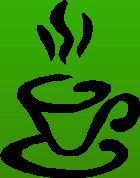 Trying to eliminate caffeine from your diet? Chances are you’ll have to try harder. Here’s a comparison of the caffeine content in a variety of coffees.
Trying to eliminate caffeine from your diet? Chances are you’ll have to try harder. Here’s a comparison of the caffeine content in a variety of coffees.
Continue reading How much caffeine is in that decaf? →
 This study by researchers at Malmö University in Sweden suggests that the development of breast cancer might be delayed in women who drink more than 2 cups of coffee each day and have a certain form of the enzyme CYP1A2.
This study by researchers at Malmö University in Sweden suggests that the development of breast cancer might be delayed in women who drink more than 2 cups of coffee each day and have a certain form of the enzyme CYP1A2.
Before you drink more coffee, read on. Continue reading The coffee (caffeine)/breast cancer relationship →
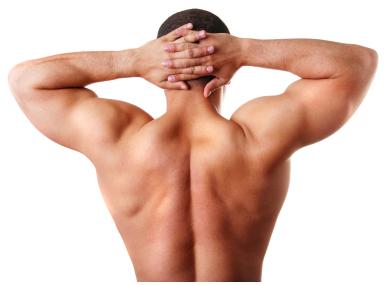 Â The International Olympic Committee no longer bans caffeine and ephedrine-related alkaloids.
 The International Olympic Committee no longer bans caffeine and ephedrine-related alkaloids.
So, what’s their effect on muscular strength and anaerobic power? Continue reading Effect of ephedra and caffeine on resistance-trained athletes →
 Contrary to popular thinking, drinking more coffee appears to lower the risk. Continue reading Coffee and the risk of gout →
Contrary to popular thinking, drinking more coffee appears to lower the risk. Continue reading Coffee and the risk of gout →
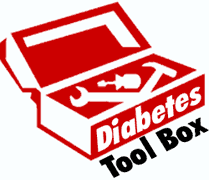 Here’s the latest information from 2 studies from Dartmouth University in New Hampshire and Duke University in Durham, North Carolina. Continue reading Clarifying the effects of caffeine on insulin and diabetes →
Here’s the latest information from 2 studies from Dartmouth University in New Hampshire and Duke University in Durham, North Carolina. Continue reading Clarifying the effects of caffeine on insulin and diabetes →
 Recently, 4 patients experienced seizures multiple times following heavy consumption of energy drinks. The authors proposed that energy drinks rich in caffeine, taurine, and guarana seed extract could have provoked these seizures.
Recently, 4 patients experienced seizures multiple times following heavy consumption of energy drinks. The authors proposed that energy drinks rich in caffeine, taurine, and guarana seed extract could have provoked these seizures.
Here’s what we know about guarana thanks to researchers from the University of Florida at Gainesville and the Brazilian Agricultural Research Corporation (EMBRAPA) in Amazonas, Brazil. Continue reading Seizures associated with guarana in energy drinks →
 They don’t contain ephedra.
They don’t contain ephedra.
This might seem intuitive, but with supplements you can’t be sure until you test.
Continue reading Good news on ephedra-free weight loss products →
 It’s commonly recommended that exercising adults and athletes avoid caffeine because it’s a diuretic, and might exacerbate dehydration and hyperthermia.
It’s commonly recommended that exercising adults and athletes avoid caffeine because it’s a diuretic, and might exacerbate dehydration and hyperthermia.
Researchers from the University of Connecticut reviewed the literature. Continue reading Defining the effects of caffeine in exercising adults →
 The Centers for Disease Control (CDC) has released its biennial revision of “the yellow book,” a health guide for international travel.
The Centers for Disease Control (CDC) has released its biennial revision of “the yellow book,” a health guide for international travel.
It’s comprehensive. The focus here is on Chapter 6: Jet Lag. Continue reading CDC reviews CAM options to minimize jet lag →
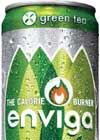 According to the manufacturer, this carbonated beverage, which contains green tea extract, calcium, and caffeine, burns about 100 calories for every three 12-ounce cans consumed. Continue reading Enviga burns a few extra calories, but will you lose weight? →
According to the manufacturer, this carbonated beverage, which contains green tea extract, calcium, and caffeine, burns about 100 calories for every three 12-ounce cans consumed. Continue reading Enviga burns a few extra calories, but will you lose weight? →
Complementary and Alternative Medicine: Fair, Balanced, and to the Point
 The surest way to know that there is no truly effective treatment for a condition is to count the number of treatment recommendations. The more recommendations, the less likely it is that any of them have a significant effect. I’m not sure if there is a tipping point. Whether 6 or 12 or 20 recommended treatments guarantee that you will have less than complete cure.
The surest way to know that there is no truly effective treatment for a condition is to count the number of treatment recommendations. The more recommendations, the less likely it is that any of them have a significant effect. I’m not sure if there is a tipping point. Whether 6 or 12 or 20 recommended treatments guarantee that you will have less than complete cure.



 Guarana (Paullinia cupana) extracts are popular in energy drinks, teas, and capsules.
Guarana (Paullinia cupana) extracts are popular in energy drinks, teas, and capsules. Reviewers from The New York Headache Center
Reviewers from The New York Headache Center  The US Food and Drug Administration is
The US Food and Drug Administration is  The results of this
The results of this  Trying to eliminate caffeine from your diet? Chances are you’ll have to try harder. Here’s a
Trying to eliminate caffeine from your diet? Chances are you’ll have to try harder. Here’s a  Here’s the latest information from 2 studies from Dartmouth University in New Hampshire and Duke University in Durham, North Carolina.
Here’s the latest information from 2 studies from Dartmouth University in New Hampshire and Duke University in Durham, North Carolina.  They don’t contain ephedra.
They don’t contain ephedra. The Centers for Disease Control (CDC) has released its biennial
The Centers for Disease Control (CDC) has released its biennial  According to the manufacturer, this carbonated beverage, which contains green tea extract, calcium, and caffeine,
According to the manufacturer, this carbonated beverage, which contains green tea extract, calcium, and caffeine,